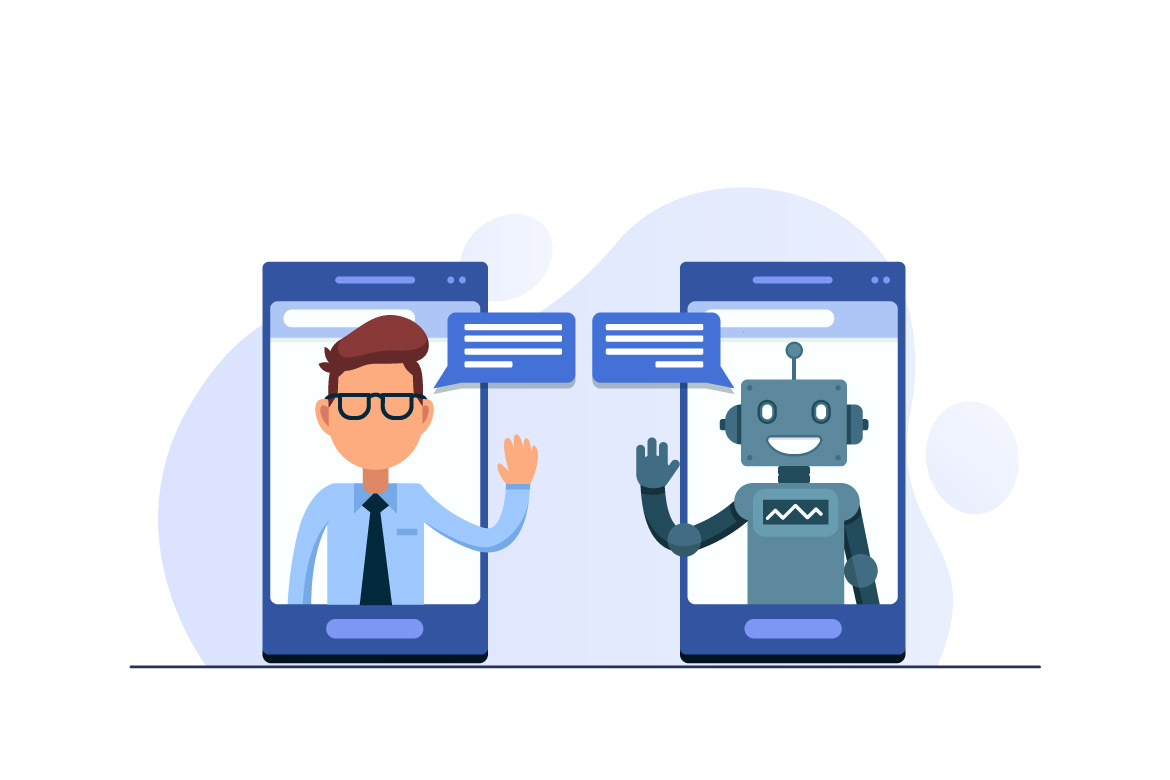Initially conceptualized by esteemed American computer scientist John McCarthy in 1956, artificial intelligence (AI) encompasses the sentient capabilities of machines devised to independently emulate, contemplate, and acquire knowledge akin to human beings. Presently, AI has infiltrated diverse facets of industry and society, ranging from inconspicuous household devices like robotic vacuum cleaners to more ground-breaking undertakings such as self-sustaining vehicles and meteorological prediction systems that continually improve themselves. It possesses the potential to instigate a digital metamorphosis with far-reaching and disruptive implications for the economy, the environment, and the quotidian lifestyles of the new-age folks.
In recent years, the advent of Conversational AI has revolutionized the way humans interact with technology, enabling machines to engage us in more intuitive and accessible ways. This emerging field of artificial intelligence has made significant strides by employing natural language processing, machine learning, and cognitive computing capabilities to understand, interpret, and respond to human language. Besides, Conversational AI, can increase business efficiency and reduce costs by handling customer inquiries at a lower expense. This leads to better ROI and customer service while saving on labor costs, as chatbots don’t require breaks or lunch hours. As a result, a proliferation of virtual assistants, chatbots, and voice-activated devices, that can carry out a variety of tasks, from conducting online transactions to providing personalized assistance, is witnessed these days. Allowing seamless integration into consumers’ daily lives, Conversational AI is devised to transform the landscape of human-computer interaction and push the boundaries of what technology can achieve. Today, Conversational AI (Artificial Intelligence) is immensely contributing to the enhancement of consumer experiences. As per IDC’s research from 2020, it is projected that over fifty percent of all customer interactions will be managed by AI-powered chatbots in the coming years. This percentage is poised to escalate as enterprises are increasingly recognizing the paramount significance of delivering exceptional customer experiences using Conversational AI.
In the realm of customer service departments, organizations continually seek methods to deliver the most exceptional experiences for their clientele. In recent times, the adoption of conversational AI has gained considerable traction amongst numerous enterprises. However, one might inquire as to the nature of conversational AI and the distinctions that set it apart from traditional chatbots in a more formal and sophisticated manner.
Bots are software applications that automate tasks, making up over half of all online traffic. While some bots serve useful purposes like search engine indexing and customer support, others can have harmful effects through malware and malicious activities. On the other hand, chatbots are designed to simulate human conversation and understand natural language, allowing them to interpret user inputs and respond coherently. Commonly used in customer support and simple tasks, chatbots can be encountered through various interactions, such as online assistance, ride requests, or ordering food. However, unlike chatbots, Conversational AI ensures a more natural conversational experience, interpreting and responding to user inputs across various languages. Conversational AI goes beyond simple task automation, providing a more natural interaction similar to human conversation. While chatbots imitate human exchanges, not all are powered by conversational AI. Conversational AI platforms use data, machine learning, and natural language processing to recognize inputs and mimic human interactions, setting a new standard for customer experience.
A chatbot is like a web development kit that can be installed on a website as a popup, usually found in the lower right corner. It appears when users visit the site and offer assistance in finding needed information. On the contrary, Conversational AI offers assistance not only in customer service capacities but also in facilitating more extensive tasks. For instance, in the realm of B2B commerce, where businesses cater to fellow organizations, conversational AI might serve to aid sales teams in lead qualification, grant employees access to HR systems through self-service features or enhance customer service experiences by providing a refined conversational interface, ultimately boosting client satisfaction.
6 ways Conversational AI enhances customer experience:
-
-
- Conversational AI allows enterprises to deliver personalized experiences for clients by using chatbots to understand their preferences and needs.
- Chatbots can improve customer service by handling multiple inquiries simultaneously, routing customers to appropriate agents, reducing wait times, and offering 24/7/365 availability, benefiting businesses.
- Conversational AI enables companies to enhance their conversational marketing and automation by utilizing chatbots to comprehend customer needs and deliver appropriate content.
- Conversational AI improves customer satisfaction by providing real-time assistance for customer queries and complaints.
- Chatbots enhance customer engagement through instant feedback and conversations, fostering stronger business-customer relationships.
- Conversational AI, like chatbots, improves customer engagement on websites, resulting in higher conversion rates and increased sales. It also reduces abandoned carts and encourages customers to return for assistance with orders.
- Conversational AI allows enterprises to deliver personalized experiences for clients by using chatbots to understand their preferences and needs.
-
Summary
In a nutshell, Conversational AI is an advanced technology that enables computer systems to engage in natural discourse with humans using machine learning and NLP. It allows for highly individualized interactions and unscripted dialogues, significantly improving conversational marketing techniques. Positive customer experiences result in loyalty and recommendations. Conversational AI, such as chatbots, improves satisfaction by providing engaging and personalized interactions, allowing customers to receive quick and easy assistance without delays or complex website navigation.



